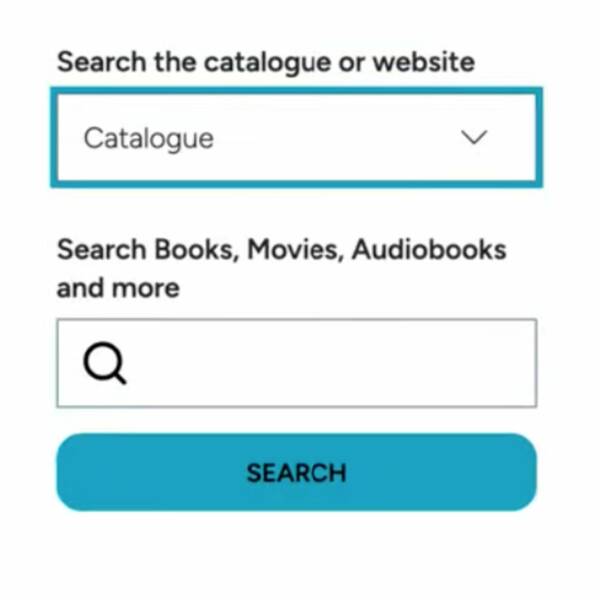Mugo partner since 2020
Case law database and monthly newsletter extends audience and revenue opportunities in Habitat Magazine’s high-value market
One of the best ways for online publishers to grow their revenue is to extend their expertise and knowledge into new audiences.
That’s the business idea behind a new legal reference database and monthly newsletter launched by long-time Mugo Web client, Habitat Magazine. The Co-op & Condo Case Law Tracker, which launched earlier this year, is a subscription service that offers attorneys in the New York City area a monthly summation of relevant New York court decisions dealing with co-ops and condos, along with a searchable database. Decision summaries are written by well-known attorneys in the co-op/condo space. The searchable database includes case summaries, links to the actual court decisions, and a host of other searchable details (courts, judges, dockets, categories, tags, etc).
The new site primarily targets attorneys, an audience adjacent to the core Habitat readership of co-op and condo board members. It’s an example of how Habitat is always looking for new channels and products to grow revenue in its localized market.
Carol Ott, the owner and publisher of Habitat Magazine, said she began working on the concept of a case law tracker back in 2018. She continued to bake the idea after she purchased a series of newsletter publications, many of which focused on conflicts between tenants and condo boards.
Ott reached out to two prominent attorneys in the New York area and secured the use of about 350 case notes as a starting point for the database. She then contacted Mugo Web, which has been Habitat’s development partner for more than a decade.
During that time, Mugo has helped Ott realize her vision for transforming Habitat from a traditional print magazine to a multi-channel online publisher, implementing features such as:
The results have been dramatic increases in subscriber revenue and overall growth for the company. So involving Mugo at the early stages of the project, as a strategic partner, made perfect sense.
“They are really smart guys,” Ott said. “They facilitate a project like this through more than just their programming.”
The Co-op & Condo Case Law Tracker is built on the Ibexa content management system, as is Habitat’s primary site. The case law tracker is built on its own instance of Ibexa, and designing the content database to reflect Ott’s vision for easy, value-added case references was a big part of the project.
However, the biggest technical challenge was integrating a new audience engagement system, Omeda, as the site’s subscription and permission control platform, said Anup Saund, development manager on the project for Mugo.
“There were some complexities that we encountered that we did not expect, in terms of validating users and site performance,” Saund said. “But we were able to resolve those with a little experimentation.”
Habitat began migrating its network of sites to Omeda with the newsletter properties Ott had acquired, many of which run on the commodity Drupal CMS. Ott said she made the switch due to subscription management issues with her previous system, and her desire to adopt a full-featured platform that will grow with her vision. In addition to paid and free subscription management, Omeda offers a wide array of first-party behavioral tracking and marketing personalization features.
As with most subscription sites, the Co-op & Condo Case Law Tracker offers a glimpse of its functionality to guest visitors, with full functionality available behind a paywall. The site offers a $1 trial period, after which accounts are flipped to a regular monthly or annual subscription.
The initial plan, Saund said, was to use Omeda’s built-in publishing functionality to inject the paywall barrier and subscription prompts. However, that resulted in some performance lags that are unacceptable in a registration process.
So Mugo implemented a system through which the Ibexa CMS uses APIs to validate a user’s logged-in / logged out status, and then presents promotional pages based on that status. Actual transactional forms, including sign-up and subscription management, are generated by Omeda and embedded in Ibexa page templates.
“It’s the better solution,” Saund said. “We still get the benefits of gathering user data with Omeda, but the site performance is still on the core system.”
Co-op & Condo Case Law Tracker subscribers can search listed cases by strings or keywords and find general overviews, called “squibs,” along with links to the full case listing at public records sites.
They can also see associated case notes from advising attorneys that put the ruling into context. (Currently, case notes are also viewable to guest visitors as a way to build interest and generate organic search engine traffic to the site.) Subscribers also get regular email newsletters advising them of new additions or developments in their topical interest areas.
Mugo created an editorial workflow that makes it easy for contributing attorneys to post new briefs, which are then reviewed and posted by Habitat team members within the Ibexa CMS. “It’s easy to manage, which is important to us, because we rely on our partners to provide a lot of value,” Ott said.
The site’s design was an iterative process, with a handful of prototypes created by Mugo’s design partner being tweaked until they came in line with Ott’s vision for the user experience. She expects a few more tweaks in the future as the product matures, “but it is a very pleasant site to use,” she said.
The challenge moving forward, Ott says, is educating her new audience of attorneys that the Co-op & Condo Case Law Tracker is targeted specifically to their needs. Habitat has such a strong brand presence as a leading resource for co-op boards that it’s a learning curve for attorneys to realize that the case tracker, at its annual price point of more than $900, is the right fit for them.
Technically, Ott and her partners at Mugo Web will continue to explore and develop ways to take advantage of the Omeda platform’s capabilities, not only on individual sites but across the entire network of Habitat properties. Saund noted that one big advantage of Omeda is that it tracks both anonymous and logged-in user behavior, and when a guest does convert to a subscriber, their behavioral history is retained for their unique ID.
“There’s always some new feature or value you can provide your audience,” Ott said. “So you always have to be thinking about the next opportunity.”

Recently, one of our clients came to us looking to archive an older website that was no longer being updated. The site still needed to be accessible to the public for reference purposes. Taking it offline was not an option due to its historical value.
Running the site on a traditional hosting environment meant paying for a full web server, application runtime, monitoring, and associated maintenance — all of which were unnecessary for a site that no longer required server-side processing.
If you have a legacy site that doesn’t require dynamic content, migrating it to AWS S3 and CloudFront can be a highly cost-effective solution, all while ensuring it remains accessible, secure, and efficient.
Automating website management tasks like SSL certificate renewal is a great way to save time and mitigate human error, particularly if you manage multiple websites. Learn how to automate SSL certificate renewal using Let’s Encrypt and Oracle Cloud Infrastructure DNS API.
Building a website often comes down to choosing between “best–of-breed” services and cost-effective solutions that meet your business needs while being relatively easy to manage. Here we explore AWS services for automated text messaging and email, and compare them with other 3rd party options in the context of work done for GoLibrary.
Newly revised rules from the ADA regarding digital accessibility mean libraries in the United States have until April 26th, 2026, to ensure they are conforming to WCAG 2.1 AA standards. What does this entail, and how can a library system start making content more accessible?

Tabbing through a web page can be a frustrating experience. The user tabs to access a menu, but with the keyboard's next tap, they’ve moved on to another page element and have to retrace their steps to access the desired content.
For users who rely on keyboard navigation, this can be a major accessibility roadblock. And for other site visitors, it’s just poor UX.
Fortunately, you can implement a fairly straightforward function in JavaScript called a “focus trap” to ensure users don’t leave the page area they’re in without intending to do so.

Mugo partner since 2024
An initiative led by the Northern Lights Library System to promote library services to Indigenous communities

WordPress can be a great option for easy website development, but because of the rapid evolution of the CMS, it can lead to inefficient code and slow loading pages. We'll show you how to clean up unused CSS and JS from pages to improve site-wide performance.

CAPTCHA is an essential need on online forms, but to be blunt, the UX sucks. Without the implementation tips (helpfully detailed below), Google’s otherwise reliable reCAPTCHA service implemented “as-is” doesn’t actually provide any browser validation. The user will have to wait for it to make a time-consuming round trip to the server. It’s a problem for anyone and becomes compounded for users with accessibility needs.